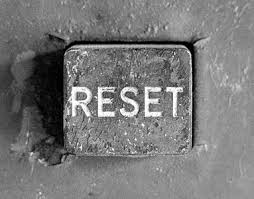As we start a new year, perhaps your plans are locked in. But perhaps there is an opportunity to rethink or, even to reinvent what we think about the sales function and how we sell.
So much of what we do is done just because, “That’s the way we’ve always done things.” We think we may have evolved, but in reality we’ve just applied a layer of technology and updated language and jargon. For example rather than being customer focused and consultative, we are insight driven.
But fundamentally, we are doing the things we have always done, but perhaps at a faster rate. We become prisoners of our own experiences.
Ironically, the data and anecdotal evidence shows that we are doing less and less well. So why do we keep doing what isn’t working as well as it has in the past.
What if we took a few moments to think about the sales function and how we sell from a zero-based budgeting approach?
What is zero-based budgeting? Traditionally, when we look at budgeting, we look at what we spent in the past year and we extract it into the coming year. We may look at new programs or increments to our budgets and spending. Then we go through the exercise of arguing for budget increases, or making trade offs on current spending to be able to afford what we want to invest in, for the coming year.
Zero-based budgeting literally starts from “$0.” We build our budgets from that, looking at what we need to do, what we choose to invest in, completely building the budget based on our plans, rather than being limited by what we have done in the past.
In applying this to selling, we might ignore everything we have done in the past. We would start from scratch, we would rethink: What are the problems we are the best in the world at solving? Who has those, consequently, who is our customer? How do they want to be engaged? How do they buy when they look at solving these problems? How do we create the greatest value, both in helping them buy and in implementing our solutions? What customer experience do we want to create, both through the life cycle of the customer?
We’d also think about where the greatest growth opportunities are, what dynamics are happening in our markets, who our competition is and what their strategies are, along with any other things.
We’d then rethink things like: How do we most effectively deploy our resources to most effectively engage the customer and address the opportunity? What does our engagement model look like, how do we most effectively execute it? What skills, competencies, experience do we need to successfully execute? What processes, systems, tools, programs, training do we need to implement the strategy? How do we measure our attainment? How do we compensate our people in achieving their goals?
These are just a few of the things we might think about. But the real magic is that we have the opportunity to think about the best way to achieve our goals, without being constrained by the way we have always done things.
It’s fair to say, “But Dave, we have what we have, we can’t start all over, from scratch. How is this useful?”
What the zero-based approach allows is the possibility to define the ideal way of doing things. It becomes a goal or target that we can migrate to. We can now start looking at what we currently do, starting to assess the changes we have to put in place to reach that ideal goal.
It might cause us to start changing the organization. It might cause us to retrain our people or acquire different talent. It might cause us to rethink our sales processes, programs, and develop/execute new engagement strategies.
Zero-based thinking about the sales function, sales people, and what we do, gives us a fantastic goal and new direction. What’s left is figuring out how we get from where we are to where we need to be.

When it comes to sales, it is so important to plan for success every year. However, planning is something that needs to be fixed. You can make changes throughout the year depending on how things are going.
Thanks Cathy, planning is actually never about the plan, but more about the process and how it forces you to think. Great planning is a dynamic process, enabling the organization to adjust based on how things are going.